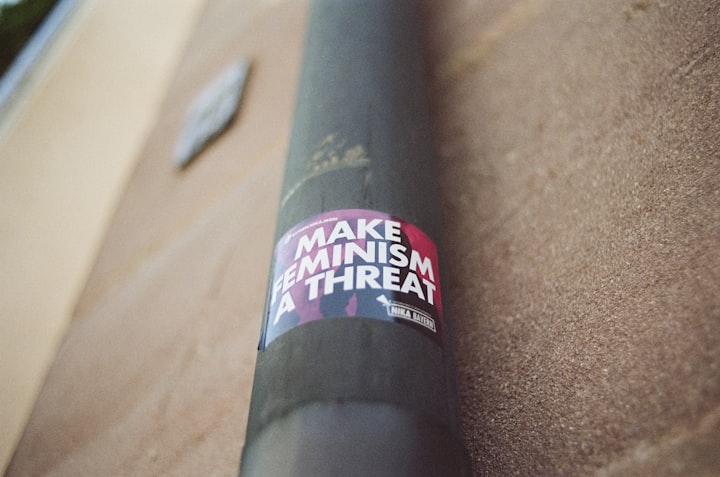
"F" in feminism stands for "Feminism" itself. Feminism is a movement that aims to achieve social, political, and economic equality for all genders. It advocates for women's rights and advocates against gender-based discrimination and oppression.
Feminism has a long history and has gone through several waves since its inception. The first wave of feminism began in the late 19th century and focused on achieving women's suffrage and legal rights. The second wave emerged in the 1960s and was concerned with issues such as reproductive rights, workplace discrimination, and gender roles. The third wave of feminism, which began in the 1990s, broadened its focus to include intersectionality and the experiences of women of color, LGBTQ+ individuals, and those with disabilities.
Feminism has made significant progress towards achieving its goals, but there is still a long way to go. Women continue to face discrimination and gender-based violence, and there are disparities in areas such as pay and representation in leadership positions. The ongoing fight for gender equality and justice requires continued effort, education, and activism.
Feminism is a social, political, and cultural movement that advocates for gender equality and the empowerment of women. It seeks to challenge and dismantle systemic discrimination and oppression based on gender, as well as address other forms of inequality and injustice such as racism, classism, ableism, and homophobia.
Feminism is rooted in the belief that women have historically been marginalized and oppressed, and that gender-based inequality persists in various forms today. Feminists aim to create a society where all people are treated equally and have the freedom to pursue their goals and aspirations, regardless of their gender identity or expression.
Feminism has evolved over time and encompasses a range of theories, ideologies, and practices. Some of the key principles of feminism include promoting women's rights, challenging gender stereotypes, advocating for reproductive justice, and ending gender-based violence and harassment. Feminism also recognizes the importance of intersectionality, or the ways in which gender intersects with other forms of identity and oppression, such as race, ethnicity, sexuality, and class.
While feminism has made significant progress in advancing women's rights and opportunities, there is still much work to be done. Women and other marginalized groups continue to face systemic discrimination and barriers to success, and feminist activism remains crucial in promoting social change and creating a more just and equitable world for all.
Feminism is a diverse and complex movement that advocates for the social, political, and economic equality of all genders. It aims to challenge and dismantle systems of oppression, such as patriarchy, that perpetuate gender inequality and discrimination.
Feminism has a long and varied history, dating back to the early 19th century, with roots in the women's suffrage movement. Over time, feminist activism has evolved to address a wide range of issues, from reproductive rights to workplace discrimination, from domestic violence to gender-based violence.
Feminism has also expanded to include the experiences of marginalized groups within the larger movement, such as women of color, LGBTQ+ individuals, and people with disabilities. Intersectionality, a concept coined by feminist scholar Kimberlé Crenshaw, highlights the ways in which different forms of oppression intersect and compound to create unique experiences of marginalization.
Feminism has made significant gains over the years, such as the right to vote, access to education and employment opportunities, and legal protections against discrimination. However, there is still much work to be done to achieve full gender equality, particularly for marginalized and underrepresented groups.
Overall, feminism is a vital movement that advocates for the rights and equality of all genders, challenges systems of oppression, and promotes social justice and inclusion.





Comments
There are no comments for this story
Be the first to respond and start the conversation.